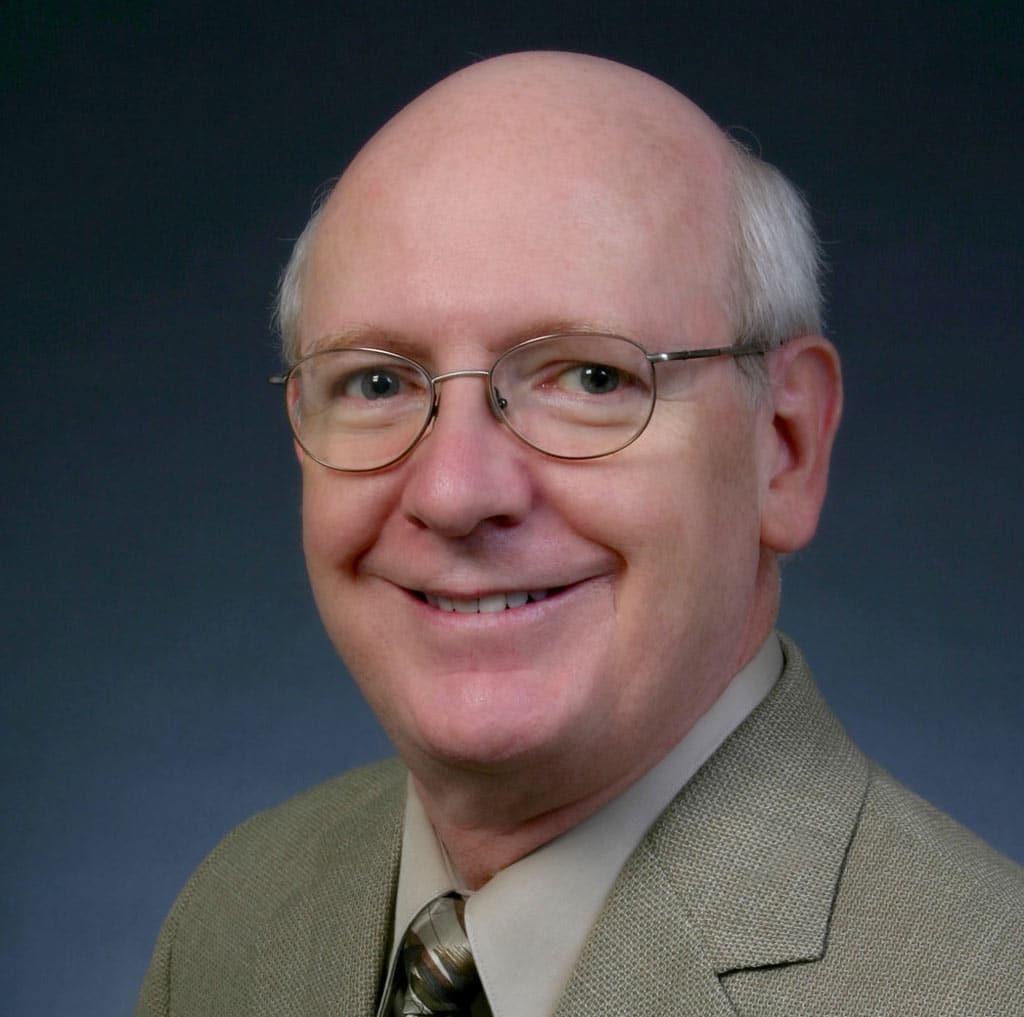Are you facing a complex oral surgery issue? Unsure whether you need the specialized skills of a maxillofacial jaw surgeon? Look no further, because this article will provide you with the insight you need to make an informed decision.
When it comes to oral surgery, the role of a maxillofacial jaw surgeon cannot be understated. These highly skilled professionals go beyond regular dentistry, focusing on complex cases that involve the mouth, jaw, and face. From corrective jaw surgeries to facial trauma reconstruction, maxillofacial jaw surgeons are trained to handle a range of procedures.
So why should you consider a maxillofacial jaw surgeon for your oral surgery needs? The answer lies in their expertise and specialized training. These surgeons possess a deep understanding of the intricate structures of the face and mouth, allowing them to analyze problems from multiple perspectives and offer tailored solutions.
If you’re looking for a successful outcome and a smooth recovery from your oral surgery, partnering with a maxillofacial jaw surgeon is essential. Their advanced skills and comprehensive approach ensure that you receive the highest standard of care, maximizing your chances of a positive result.
Don’t leave your oral health to chance. Discover the significant benefits of entrusting your oral surgery to a qualified maxillofacial jaw surgeon.
The Importance of Oral Surgery
Oral surgery plays a crucial role in maintaining and improving oral health. From tooth extractions to complex reconstructive procedures, oral surgery addresses a wide range of issues that cannot be resolved with regular dental treatments alone.
One of the key reasons why oral surgery is important is the impact it can have on a person’s quality of life. Conditions such as impacted wisdom teeth, misaligned jaws, and facial trauma can cause significant discomfort and affect a person’s ability to eat, speak, and even breathe properly. Oral surgery aims to correct these problems, restoring functionality and improving overall well-being.
Additionally, oral surgery is often necessary to prevent further complications. For example, impacted wisdom teeth can lead to infections, damage to adjacent teeth, and even cysts or tumors if left untreated. By removing these problematic teeth through oral surgery, potential risks and future complications can be eliminated.
Furthermore, oral surgery is essential for addressing aesthetic concerns. Maxillofacial jaw surgeons are trained not only in functional aspects but also in the art of facial aesthetics. They can correct facial asymmetry, enhance the proportions of the jawline, and improve the overall facial appearance. This blend of functional and aesthetic expertise sets maxillofacial jaw surgeons apart from regular dentists, making them the ideal choice for complex oral surgery cases.
In conclusion, oral surgery is crucial for addressing a wide range of oral health issues, improving functionality, preventing complications, and enhancing aesthetics. To ensure the best possible outcome, it is important to consider the expertise of a maxillofacial jaw surgeon.

What is a Maxillofacial Jaw Surgeon
A maxillofacial jaw surgeon, also known as an oral and maxillofacial surgeon, is a dental specialist who focuses on surgeries involving the mouth, jaw, and face. These surgeons undergo extensive training and education beyond dental school, equipping them with the knowledge and skills to handle complex surgical cases.
To become a maxillofacial jaw surgeon, individuals must complete both dental and medical degrees. This unique combination of training allows them to understand the interplay between oral health and overall health, providing a holistic approach to patient care. Additionally, maxillofacial jaw surgeons complete a residency program that typically lasts four to six years, during which they gain hands-on experience in a variety of surgical procedures.
Maxillofacial jaw surgeons are trained to diagnose and treat a wide range of conditions, including but not limited to:
- Corrective jaw surgery: This type of surgery is performed to address issues such as misaligned jaws, overbites, underbites, or open bites. By repositioning the jaws, maxillofacial jaw surgeons can improve both function and aesthetics.
- Facial trauma reconstruction: Maxillofacial jaw surgeons play a critical role in treating facial injuries resulting from accidents, sports-related incidents, or other traumatic events. They have the expertise to repair fractures, lacerations, and other facial injuries, restoring both form and function.
- Dental implant placement: When a tooth is lost or needs to be extracted, maxillofacial jaw surgeons are skilled in placing dental implants to replace the missing tooth root. This procedure provides a stable foundation for prosthetic teeth, improving both appearance and functionality.
- Removal of impacted teeth: Impacted wisdom teeth, or other impacted teeth, can cause pain, infection, and damage to neighboring teeth if not addressed. Maxillofacial jaw surgeons have the necessary training to safely remove impacted teeth, minimizing potential risks and complications.
- Treatment of oral and facial pathology: Maxillofacial jaw surgeons are trained to diagnose and treat a variety of oral and facial pathologies, including cysts, tumors, infections, and abnormalities. Their expertise ensures accurate diagnosis and appropriate treatment.
In summary, a maxillofacial jaw surgeon is a highly trained dental specialist with expertise in complex oral surgeries involving the mouth, jaw, and face. Their comprehensive training and experience make them uniquely qualified to handle a wide range of oral health issues.
The Role of a Maxillofacial Jaw Surgeon in Oral Surgery
The role of a maxillofacial jaw surgeon in oral surgery is multifaceted and encompasses various aspects of patient care. Beyond their technical skills, these surgeons bring a unique perspective to oral surgery cases, considering not only the functional aspects but also the aesthetic impact on the patient’s overall appearance.
One of the key roles of a maxillofacial jaw surgeon is thorough and accurate diagnosis. Through a combination of physical examinations, imaging techniques, and medical history analysis, these surgeons can identify the underlying causes of oral health issues. This diagnostic process is crucial in determining the most appropriate treatment plan tailored to the patient’s specific needs.
Once a diagnosis is made, a maxillofacial jaw surgeon plays a vital role in educating the patient about their condition and the available treatment options. They take the time to explain the benefits, risks, and potential outcomes of each option, empowering the patient to make an informed decision. This patient-centered approach ensures that the treatment plan aligns with the patient’s goals and expectations.
During the surgical procedure itself, maxillofacial jaw surgeons employ their technical skills and knowledge to execute the planned treatment with precision. Whether it’s a corrective jaw surgery, dental implant placement, or facial trauma reconstruction, these surgeons utilize their expertise to achieve optimal results while prioritizing patient safety.
But the role of a maxillofacial jaw surgeon doesn’t end with the surgery itself. These surgeons provide comprehensive post-operative care, monitoring the patient’s recovery and ensuring that the healing process is progressing as expected. They offer guidance on pain management, diet modifications, and oral hygiene practices to promote a smooth and successful recovery.
In addition to the technical and post-operative aspects, maxillofacial jaw surgeons also bring an artistic eye to their work. They understand that oral surgery has a significant impact on a person’s facial aesthetics, and they strive to achieve a harmonious balance between function and appearance. This artistic approach sets them apart from regular dentists and contributes to the overall satisfaction of the patient.
To sum it up, the role of a maxillofacial jaw surgeon in oral surgery is comprehensive. From accurate diagnosis to patient education, surgical expertise, post-operative care, and aesthetic considerations, these surgeons provide a holistic approach to oral health care. By entrusting your oral surgery needs to a qualified maxillofacial jaw surgeon, you can have confidence in receiving the highest standard of care and achieving the best possible outcome.

Common oral conditions that may require a maxillofacial jaw surgeon
Oral surgery encompasses a wide range of conditions, some of which may require the expertise of a maxillofacial jaw surgeon. Let’s explore some common oral conditions that may benefit from the specialized skills of these surgeons.
1. Orthognathic Surgery
Orthognathic surgery, also known as corrective jaw surgery, is a procedure performed to correct irregularities in the jaw and facial structure. This type of surgery is often recommended for individuals with severe bite problems, jaw misalignment, or facial asymmetry. A maxillofacial jaw surgeon is highly trained in analyzing and diagnosing these complex cases, allowing them to create a comprehensive treatment plan that addresses both functional and aesthetic concerns. Whether it’s a protruding jaw, an open bite, or a receding chin, a maxillofacial jaw surgeon can help restore harmony to your facial features and improve your overall oral health.
2. Facial Trauma Reconstruction
Facial trauma, such as fractures or injuries to the jaw, cheekbones, or eye sockets, requires specialized care for proper reconstruction. Maxillofacial jaw surgeons are proficient in managing facial trauma cases, thanks to their in-depth knowledge of the facial anatomy and their expertise in performing intricate surgical procedures. Whether it’s a sports-related injury or a car accident, a maxillofacial jaw surgeon can assess the extent of the damage and develop a treatment plan that restores both function and aesthetics. Their skills in bone grafting, soft tissue repair, and facial reconstruction techniques ensure optimal outcomes for patients with facial trauma.
3. Temporomandibular Joint (TMJ) Disorders
The temporomandibular joint (TMJ) is responsible for connecting the jawbone to the skull. TMJ disorders can cause pain, discomfort, and limitations in jaw movement. While mild cases of TMJ disorders can often be managed with conservative treatments, severe or complex cases may require surgical intervention. Maxillofacial jaw surgeons are well-versed in the anatomy and mechanics of the TMJ, allowing them to diagnose and treat TMJ disorders effectively. Whether it’s arthrocentesis, arthroscopy, or open joint surgery, a maxillofacial jaw surgeon can provide the necessary expertise to alleviate TMJ-related symptoms and improve jaw function.
In addition to these specific conditions, maxillofacial jaw surgeons also handle a variety of other oral surgery cases, including wisdom tooth extractions, dental implant placements, and cleft lip and palate repairs. Their extensive training and experience equip them with the skills needed to tackle even the most complex oral surgical procedures.
Benefits of seeking treatment from a maxillofacial jaw surgeon
Partnering with a maxillofacial jaw surgeon for your oral surgery needs offers numerous benefits. Let’s explore some of the advantages that come with seeking treatment from these highly specialized professionals.
1. Expertise in Complex Procedures
Maxillofacial jaw surgeons undergo years of rigorous training to develop expertise in complex oral surgical procedures. Their specialized knowledge of the facial anatomy and their understanding of how the oral structures impact overall facial aesthetics make them uniquely qualified to handle intricate cases. Whether it’s a major jaw realignment or facial trauma reconstruction, maxillofacial jaw surgeons have the skills and experience necessary to ensure optimal outcomes for their patients.
2. Comprehensive Approach to Treatment
One of the key advantages of working with a maxillofacial jaw surgeon is their comprehensive approach to treatment. These surgeons consider not only the functional aspects of oral surgery but also the aesthetic impact on the patient’s overall facial appearance. By analyzing the entire facial structure, they can develop a treatment plan that addresses both functional and cosmetic concerns, providing patients with the best possible outcome. This holistic approach sets maxillofacial jaw surgeons apart from general dentists and ensures that patients receive personalized and tailored care.
3. Access to Advanced Technology and Techniques
Maxillofacial jaw surgeons have access to the latest advancements in oral surgery technology and techniques. From advanced imaging systems to computer-assisted surgical planning, these professionals utilize cutting-edge tools to enhance the accuracy and precision of their procedures. By staying up-to-date with the latest developments in the field, maxillofacial jaw surgeons can offer their patients the benefits of modern technology, leading to more efficient and effective treatment.
4. Improved Recovery and Reduced Complications
With their specialized training and experience, maxillofacial jaw surgeons can help facilitate a smoother recovery process and minimize the risk of complications. They understand the intricacies of oral surgery and take the necessary precautions to ensure optimal healing. Whether it’s prescribing appropriate medications, providing detailed post-operative instructions, or closely monitoring the recovery progress, maxillofacial jaw surgeons prioritize their patients’ well-being throughout the entire treatment journey.
How to find a qualified maxillofacial jaw surgeon
Finding a qualified maxillofacial jaw surgeon for your oral surgery needs is crucial to ensure a successful outcome. Here are some steps to help you find the right surgeon for your specific requirements:
- Research: Start by researching maxillofacial jaw surgeons in your area. Look for board-certified surgeons who have extensive experience in the specific procedure you require. Online reviews and patient testimonials can also provide valuable insights into the surgeon’s skills and patient satisfaction.
- Consultations: Schedule consultations with multiple surgeons to discuss your oral surgery needs. During these consultations, ask about the surgeon’s experience, success rates, and the specific procedures they specialize in. This will help you determine if the surgeon’s expertise aligns with your requirements.
- Credentials and Certifications: Verify the surgeon’s credentials and certifications. Board certification in oral and maxillofacial surgery is a testament to the surgeon’s expertise and adherence to the highest standards of care.
- Hospital Affiliations: Inquire about the surgeon’s hospital affiliations. Being associated with reputable hospitals indicates that the surgeon meets strict quality standards and has access to advanced facilities.
- Patient Feedback: Seek feedback from previous patients who have undergone similar procedures with the surgeon. Their experiences can provide valuable insights into the surgeon’s skill, bedside manner, and overall patient satisfaction.
- Communication and Comfort: Choose a surgeon with whom you feel comfortable communicating openly. Effective communication is essential for a successful treatment journey, so prioritize finding a surgeon who listens to your concerns, answers your questions, and explains the procedure thoroughly.
Remember, finding the right maxillofacial jaw surgeon is a crucial step towards ensuring a successful outcome for your oral surgery. Take the time to research and consult with multiple surgeons before making your decision.
What to Expect During a Consultation with a Maxillofacial Jaw Surgeon
When you schedule a consultation with a maxillofacial jaw surgeon, you can expect a thorough evaluation of your specific oral surgery needs. The initial consultation is an essential step in the process, as it allows the surgeon to assess your condition and recommend suitable treatment options.
During the consultation, the surgeon will begin by reviewing your medical history and conducting a physical examination of your oral and facial structures. This examination may involve X-rays, scans, or other imaging techniques to get a detailed view of the affected area. By understanding your unique anatomy and any underlying conditions, the surgeon can tailor their approach to your individual needs.
Once the evaluation is complete, the maxillofacial jaw surgeon will explain their findings and discuss potential treatment options with you. They will take the time to answer any questions or concerns you may have, ensuring that you have a clear understanding of the proposed procedures.
It’s important to note that a maxillofacial jaw surgeon’s expertise extends beyond surgical intervention. They will also provide guidance on preoperative and postoperative care, ensuring you are well-prepared for the procedure and have a smooth recovery.
Partnering with a maxillofacial jaw surgeon during the consultation phase allows for a comprehensive assessment of your oral health and a personalized treatment plan that addresses your specific needs. Their expertise and attention to detail are invaluable in ensuring the best possible outcome for your oral surgery.
Recovery and Aftercare Following Oral Surgery with a Maxillofacial Jaw Surgeon
Recovery and aftercare play a crucial role in the success of any oral surgery procedure. When you choose a maxillofacial jaw surgeon, you can expect comprehensive support throughout your recovery journey.
Following your oral surgery, the maxillofacial jaw surgeon will provide detailed instructions for postoperative care. These instructions may include dietary restrictions, pain management strategies, and guidelines for maintaining oral hygiene. It’s essential to follow these instructions diligently to promote proper healing and minimize the risk of complications.
In some cases, the surgeon may recommend follow-up appointments to monitor your progress and ensure that your recovery is on track. During these appointments, they will assess your healing, address any concerns or complications, and make any necessary adjustments to your treatment plan.
Throughout the recovery period, the maxillofacial jaw surgeon and their team will be available to answer your questions and provide support. They understand that the healing process can be challenging and may involve discomfort or swelling. By maintaining open lines of communication, they can address any issues promptly and provide reassurance.
Recovering from oral surgery can vary depending on the complexity of the procedure and individual factors. However, by entrusting your care to a maxillofacial jaw surgeon, you can have confidence in their expertise and commitment to your well-being during the recovery phase.
Conclusion and Final Thoughts on the Role of a Maxillofacial Jaw Surgeon in Oral Surgery
In conclusion, the role of a maxillofacial jaw surgeon in oral surgery is paramount. Their expertise and specialized training make them uniquely qualified to handle complex cases involving the mouth, jaw, and face. By choosing a maxillofacial jaw surgeon for your oral surgery needs, you can expect a comprehensive evaluation, personalized treatment plan, and ongoing support throughout your recovery.
When it comes to your oral health, it’s essential not to compromise. By partnering with a maxillofacial jaw surgeon, you can ensure that you receive the highest standard of care and increase your chances of a successful outcome.
So, if you’re facing a complex oral surgery issue, consider consulting with a maxillofacial jaw surgeon. Their advanced skills, comprehensive approach, and dedication to your well-being make them an invaluable asset in achieving optimal oral health and a positive surgical outcome.
Don’t settle for anything less than the best when it comes to your oral surgery. Choose the expertise of a maxillofacial jaw surgeon and experience the difference they can make in your journey to improved oral health.






